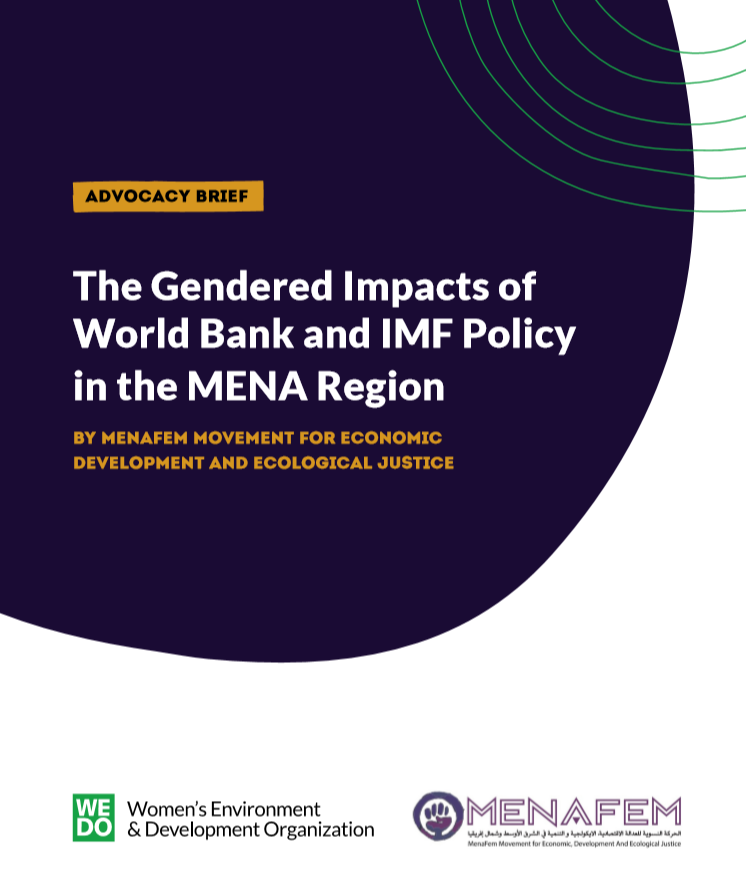The Gendered Impacts of World Bank and IMF Policy in the MENA Region
An Advocacy Brief by MenaFem Movement in Collaboration with WEDO
The advocacy brief, by MenaFem Movement in Collaboration with WEDO, offers a feminist, macroeconomic analysis of the role played by Bretton Woods Institutions, the World Bank, and the International Monetary Fund (IMF) in shaping economic policies across the Middle East and North Africa, and the gendered consequences of those policies on women and marginalized communities.
Framed within a critique of global economic power structures and their colonial legacies, the brief challenges the myth that macroeconomics is a neutral or purely technical field. It demonstrates how austerity, privatization, and fiscal consolidation deepen gender inequalities by reducing public investment in essential services such as health, education, and social protection, thus expanding women’s unpaid care work and limiting their economic participation.
It also examines how conflict, climate crisis, and financial conditionalities intersect to reproduce structural vulnerability across the region, particularly for women in conflict-affected or climate-exposed contexts. The brief underscores the need to decolonize global economic governance and reimagine development through feminist and justice-oriented frameworks grounded in care, equity, and collective well-being.
Ultimately, it calls for a feminist reform of the IMF and World Bank, advocating for gender-responsive macroeconomic frameworks, fair and progressive taxation, investment in public care infrastructure, and inclusive policy dialogue between financial institutions, governments, and feminist movements in the MENA region.


